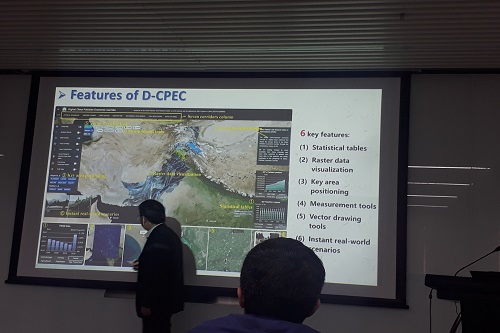Prof. HuiChuan Xia, Peking University, Beijing, discussed mechanisms for enhancing government and citizen collaboration through data utilization on 23 Sep. 2025 at XiongAn China
During my visit to Xiongan, I attended a session conducted by Prof. HuiChuan Xia, Peking University, Beijing, who discussed mechanisms for enhancing government–citizen collaboration through data utilization. Here are some interesting points from the talk.

Privacy protection and data security in China, as presented by Prof. Huichuan Xia (Peking University), highlighted the evolving and complex nature of privacy. While privacy is often described as "the right to be left alone," in ancient China it was framed more in terms of secrecy. Modern interpretations vary: some view it as a psychological or situational state, others as a boundary for information flow, a standard of contextual integrity, or a taxonomy of violative actions. Privacy is also tied to liberty, both positive and negative, and becomes even more complicated when linked to data security, which extends beyond individual rights to encompass issues of national sovereignty.
China has introduced multiple laws to regulate cyberspace, algorithms, data integrity, cross-border flows, network security, and AI services. A landmark development is the Personal Information Protection Law (PIPL), China's first dedicated privacy law, which parallels the EU's GDPR. PIPL establishes seven rights for individuals: informed consent, decision-making, consultation and duplication, data transfer, correction and supplementation, explanation requests, and deletion. It emphasizes data minimization and transparency, applying even to organizations outside China. Cases like Dior's violation of PIPL illustrate its enforcement scope. Together, these frameworks show China's attempt to balance government-citizen interaction, responsible data use, personal liberty, and national sovereignty in the digital era.
Context:A two weeks training titled "International Training Program on Policies and Applications of Government Data Governance in Belt and Road (B&D) Countries" (14-28 September, 2025) was held at XiongAn New Area, China. The training was hosted by the Department of International Cooperation of the Ministry of Science and Technology, organized by Institute of Scientific and Technical Information of China (ISTIC) and co-organized by UNESCO-IFAP China National Committee, UNESCO IFAP Information for Development Working Group (IDWG) and XiongAn Group Digital City Company.
The training included 14 participants from eight countries-China, Pakistan, Sri Lanka, Brazil, Kazakhstan, Zambia, Iran, and Indonesia-representing a wide range of expertise, including public administration, computer science, international relations, environmental science, data governance, industrial management, information science, and international communication.



